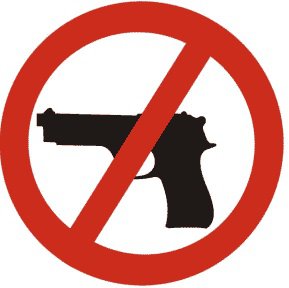New research suggests that universal background check legislation of the sort currently being debated in Congress has had an enormous impact on gun violence in the past, according to testimony presented at Tuesday’s hearing before the Senate Judiciary committee. Daniel Webster, the Director Johns Hopkins Center for Gun Policy and Research, studied the consequences of Missouri repealing its “permit-to-purchase” law in 2007. This law, which required a background check as well as a brief sheriff’s review be conducted on all gun sales, closed the private sales loophole, and its repeal meant that Missouri would allow guns to be sold privately without a background check for the first time in recent history.
Webster found evidence that the expiration of the law resulted in a sharp, roughly 25 percent spike in the homicide rate in Missouri — despite the fact that gun violence was declining nationally and reigonally:
Preliminary evidence suggests that the increase in the diversion of guns to criminals linked to the law’s repeal may have translated into increases in homicides committed with firearms. From 1999 through 2007, Missouri’s age-adjusted homicide rate was relatively stable, fluctuating around a mean of 4.66 per 100,000 population per year. In 2008, the first full year after the permit-to-purchase licensing law was repealed, the age-adjusted firearm homicide rate in Missouri increased sharply to 6.23 per 100,000 population, a 34 percent increase. For the post-repeal period of 2008-2010, the mean annual age-adjusted firearm homicide rate was 5.82, 25 percent above the pre-repeal mean. This increase was out of synch with changes during that period in age-adjusted homicide rates nationally which decreased ten percent and with changes in other states in the Midwest which declined by 5%.
Normally it’s very hard to ascribe changes in homicide rates to any one particular factor, but Webster and his co-workers found strong evidence to support the idea that the repeal of the permit-to-purchase law was the cause. They did a careful analysis of the kind of guns used by criminals in Missouri from 2007-2011, finding an extraordinary increase in the percentage of “young” (meaning recently purchased) guns used in crime entirely at odds with the broader national trend. This would suggest that, without background checks to worry about, it was easier for criminals to get new guns. The fact that this surge in criminals getting new guns coincided with a sharp increase in the gun homicide rate gives strong reason to believe that the repeal of the background check law directly led to a 25 percent increase in the homicide rate.

